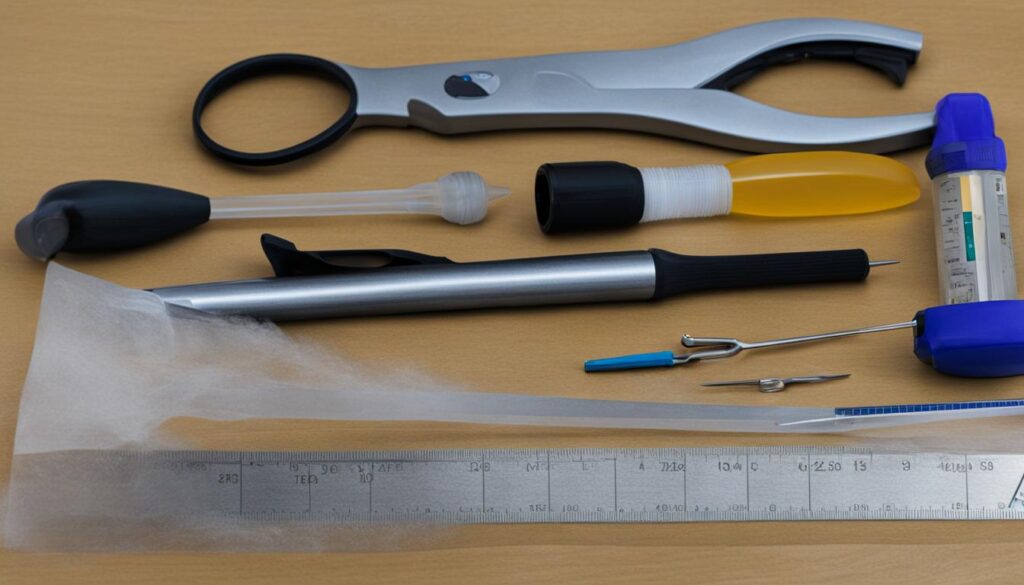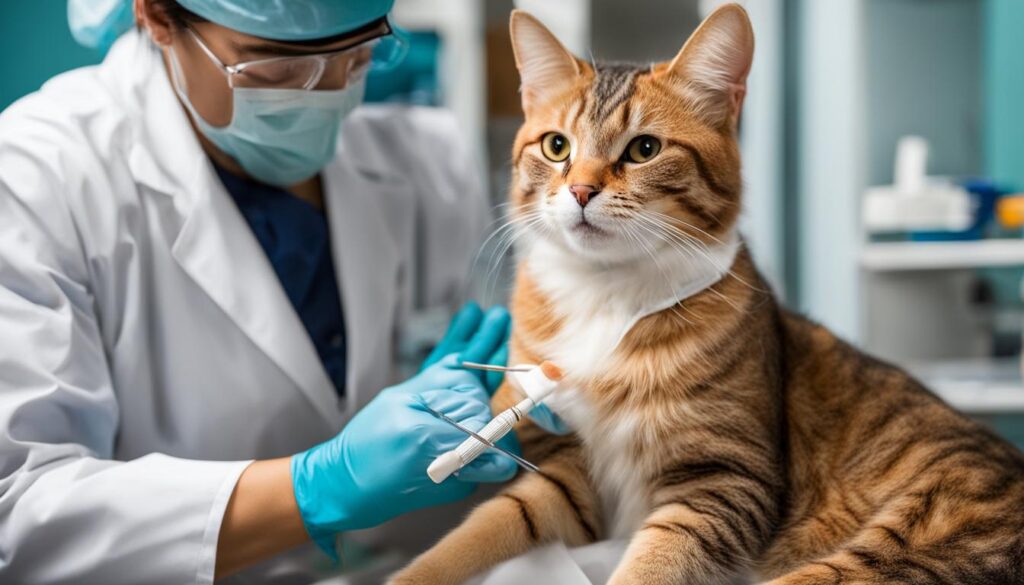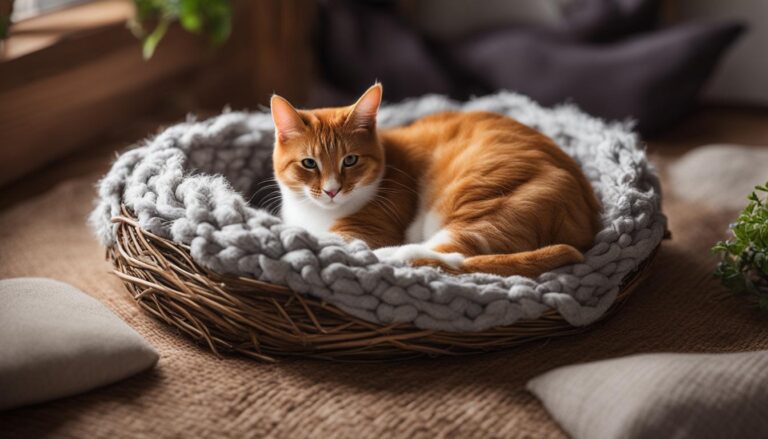Have you ever wondered about the duration of a cat’s pregnancy? Understanding the gestation period of a cat is essential for providing proper care during this exciting time. In this article, we will explore the length of cat pregnancies, as well as the physical and behavioral signs to look out for. We will also discuss how to care for a pregnant cat and confirm her pregnancy. So, let’s dive into the fascinating world of feline pregnancies.
Belangrijkste opmerkingen:
- The gestation period of a cat typically lasts around 63 to 65 days.
- Physical signs of pregnancy in cats include an enlarged abdomen, changes in nipples, and weight gain.
- Behavioral signs of pregnancy in cats include increased grooming, nesting instinct, and changes in mood.
- Caring for a pregnant cat involves providing a comfortable nest, a balanced diet, and regular vet check-ups.
- Methods to confirm cat pregnancy include palpation, ultrasound, X-ray, and blood tests.
Physical Signs of Pregnancy in Cats
When a cat becomes pregnant, there are several physical signs that can help you confirm her pregnancy. These signs include an enlarged abdomen, changes in her nipples, and weight gain. By recognizing these signs, you can provide the necessary care and support for your pregnant cat.
One of the most noticeable physical signs of pregnancy in cats is an enlarged abdomen. Around four weeks into the pregnancy, you may start to notice that your cat’s belly is getting bigger. This is due to the growing kittens inside her womb. Keep in mind that the size of the abdomen can vary depending on the number of kittens and the size of the cat.
In addition to the enlarged abdomen, you may also observe changes in your cat’s nipples. As the pregnancy progresses, her nipples may become larger, more prominent, and even take on a pinkish color. This is a natural response to the hormonal changes happening in her body. It’s important to note that these changes are not to be confused with mammary gland infections, so it’s always a good idea to consult with a veterinarian.
Weight gain is another common physical sign of pregnancy in cats. As the kittens grow and develop, your cat’s weight will increase. This weight gain is normal and should be monitored to ensure that it stays within a healthy range. A balanced diet and regular vet check-ups are crucial during this time to support your cat’s health and the well-being of her kittens.
Physical Signs of Pregnancy in Cats
| Borden | Beschrijving |
|---|---|
| Enlarged abdomen | The cat’s belly becomes visibly larger as the pregnancy progresses. |
| Changes in nipples | The cat’s nipples become larger, more prominent, and may turn pink in color. |
| Weight gain | The cat gains weight as the kittens grow and develop. |
In summary, if you notice an enlarged abdomen, changes in your cat’s nipples, and weight gain, it is likely that she is pregnant. These physical signs are important indicators of pregnancy and can help you provide the necessary care and support for your cat and her growing family.
Table: Cat Pregnancy Care Checklist
| Aspect | Guidelines |
|---|---|
| Nesting Area | Provide a quiet and secure nesting area with soft bedding. |
| Diet | Feed a balanced diet designed for pregnant cats. |
| Vet Check-ups | Schedule regular check-ups with a veterinarian for monitoring and guidance. |
| Stress Management | Minimize stress in the cat’s environment to promote a successful pregnancy. |
By following these guidelines, you can provide the necessary care and support for your pregnant cat. Remember, a comfortable nest, a balanced diet, regular vet check-ups, and a stress-free environment are key to ensuring the health and well-being of both the mother and her kittens.
Confirming Pregnancy in Cats
Confirming cat pregnancy is an important step in providing appropriate care for both the mother and her kittens. Veterinarians employ various methods to diagnose cat pregnancy, including palpation, ultrasound, X-ray, and blood tests.
Palpation for Pregnancy in Cats
Palpation involves manually feeling the cat’s abdomen to detect the growing fetuses. This method can be done around two to three weeks after conception. The veterinarian gently presses their hands on the cat’s belly to feel for small lumps or changes in the uterus size. Palpation requires experience and expertise to accurately identify pregnancy.
Ultrasound for Pregnancy Detection in Cats
Ultrasound is another effective method for confirming cat pregnancy. It can detect pregnancy as early as 15 to 20 days after conception. During an ultrasound exam, sound waves are used to create an image of the cat’s reproductive organs. This allows the veterinarian to visualize the developing fetuses in the uterus.
X-ray for Confirming Pregnancy in Cats
X-rays can be used to confirm cat pregnancy after 45 days. By this time, the kittens’ skeletons would have developed and can be seen on the X-ray image. This method provides a clear visual confirmation of the pregnancy and allows the veterinarian to determine the number of kittens.
Blood Tests for Pregnancy Hormone Levels
Blood tests can measure the presence of pregnancy hormones in the cat’s bloodstream. These tests can be used to detect pregnancy, but they are less accurate than other methods and are typically used when other methods are inconclusive. Blood tests are usually performed by analyzing the levels of a hormone called relaxin, which is produced by pregnant cats.
| Methode | Timing | Accuracy |
|---|---|---|
| Palpation | Around 2-3 weeks after conception | Experienced veterinarian required for accuracy |
| Ultrasound | 15-20 days after conception | Highly accurate |
| X-ray | After 45 days of pregnancy | Clear visual confirmation of pregnancy and number of kittens |
| Blood Tests | Varies | Less accurate than other methods |
These methods for diagnosing cat pregnancy allow veterinarians to provide appropriate care and guidance throughout the pregnancy. By confirming pregnancy, cat owners can ensure that their feline companion receives the necessary care and support during this crucial time.

Important Considerations for Pregnant Cats
When your cat is pregnant, there are several important considerations to keep in mind to ensure her health and the well-being of her kittens. Providing vaccinations for pregnant cats is essential in protecting them from diseases that could harm both the mother and the developing kittens. Vaccinating your cat before she becomes pregnant or during the early stages of pregnancy is ideal, as it helps her build immunity that can be passed on to her offspring.
Deworming pregnant cats is another crucial aspect of their care. Intestinal parasites can be passed on to the kittens during pregnancy or through nursing. Deworming medications prescribed by your vet can help eliminate these parasites and prevent potential health issues for both the mother and the kittens.
As your cat approaches her due date, it’s important to prepare for the birth and care of the kittens. Creating a clean and comfortable nesting area is essential. Provide a quiet space with soft bedding where your cat can safely give birth and nurse her kittens. Gather necessary supplies such as clean towels, blankets, and a litter box nearby. It’s also a good idea to have the contact information for your veterinarian readily available in case of any emergencies.
Finally, ensuring a clean and comfortable environment is crucial for the overall well-being of your pregnant cat. Keep her living area clean and free from potential hazards. Provide her with fresh water and high-quality food formulated for pregnant cats to support her nutritional needs. Minimize stress by keeping noise levels low and avoiding sudden changes to her routine. Stress can have a negative impact on the health of both the mother and her kittens.
Summary
- Provide vaccinations for pregnant cats to protect their health and the health of their kittens.
- Deworm pregnant cats to prevent the transmission of intestinal parasites.
- Prepare a clean and comfortable nesting area for your cat to give birth and care for her kittens.
- Create a clean and stress-free environment to promote the well-being of the pregnant cat.

| Vaccinations for Pregnant Cats | Deworming Pregnant Cats |
|---|---|
| Protects the mother and kittens from diseases | Prevents the transmission of parasites |
| Administered before pregnancy or during early stages | Prescribed deworming medications by the veterinarian |
| Builds immunity passed on to the kittens | Eliminates potential health issues for mother and kittens |
Conclusie
In conclusion, cat pregnancy typically lasts around 63 to 65 days, although there can be slight variations depending on the individual cat. During this time, it is important to provide appropriate care for the pregnant cat to ensure her and her kittens’ well-being.
Physical signs such as an enlarged abdomen and changes in nipples can indicate pregnancy, while behavioral changes like increased grooming and nesting instincts are also common. Understanding and recognizing these signs can help you provide the necessary support and comfort for your pregnant cat.
Caring for a pregnant cat involves creating a comfortable nesting area, offering a balanced diet tailored to her nutritional needs, and scheduling regular check-ups with a veterinarian. Minimizing stress in her environment is also crucial for a healthy pregnancy.
Confirming cat pregnancy can be done through methods such as palpation, ultrasound, X-ray, or blood tests. Discussing these options with a veterinarian can help ensure accurate diagnosis and proper preparation for the birth of the kittens.




